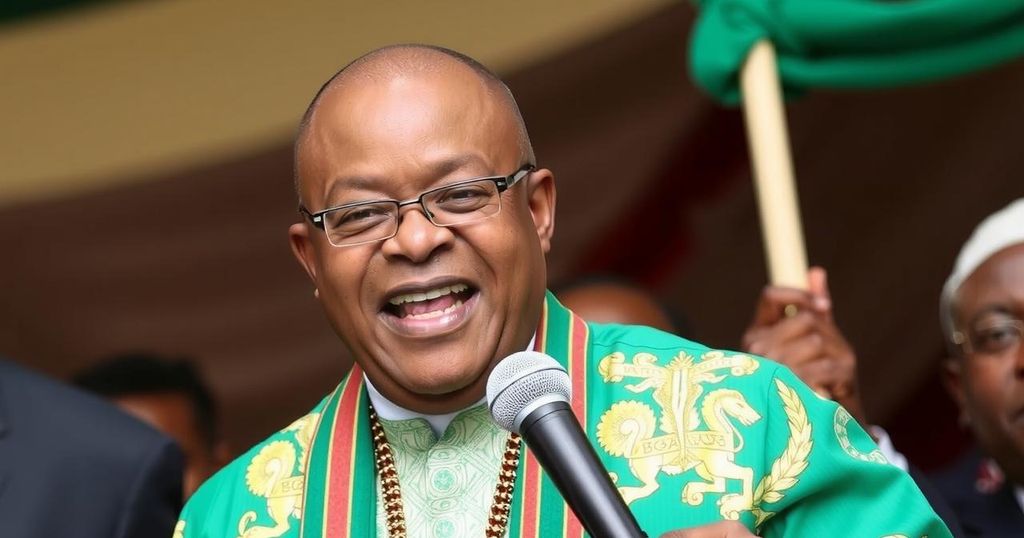Historic Election Comeback for Ghana’s John Mahama

John Mahama has achieved a remarkable comeback in Ghana’s elections, reclaiming the presidency after economic turmoil led to a shift in voter priorities. His victory marks the first time a former president has returned to office post-defeat in the 30-year Fourth Republic. Promising to reset the economy and tackle corruption, Mahama aims to respond to public demands for change, particularly from the youth.
John Mahama, formerly the president of Ghana and the leader of the National Democratic Congress (NDC), has made a remarkable comeback in the recent elections, reclaiming the presidency on his third attempt. This historic victory is notable as it marks the first time in Ghana’s Fourth Republic that a former president has returned to office after being voted out. Mahama triumphed over Vice President Mahamudu Bawumia of the ruling New Patriotic Party (NPP) following a campaign that heavily focused on addressing the nation’s economic challenges, especially after Ghana’s recent debt default and the ensuing $3 billion agreement with the International Monetary Fund (IMF).
During the electoral campaign, Mahama, 66, articulated a vision of “resetting” Ghana’s economy and promised to engage in negotiations to revisit certain terms of the IMF deal, while also proposing the establishment of a “24-hour economy” aimed at job creation to appeal to younger voters. His presidency from 2012 to 2017 had been marred by an energy crisis known universally as “dumsor,” alongside allegations of corruption that cast a shadow over his previous administration. Nevertheless, Mahama’s campaign sought to highlight his international experience, notably in crisis management as the chair of ECOWAS during the Ebola outbreak.
Moreover, Mahama indicated his intention to tackle corruption deliberately by establishing a new office dedicated to overseeing government procurement exceeding $5 million, recognizing that unchecked processes in this area significantly contribute to corruption. In his personal narrative, Mahama has indicated that his formative experiences, particularly during a military coup in Ghana in 1966, have shaped his political outlook. Further complicating his stance, Mahama publicly endorsed an anti-LGBTQ bill passed in Ghana’s parliament, a measure that has drawn international scrutiny.
With his election victory, Mahama’s campaign spokesperson, Mustapha Gbande, expressed confidence in the public’s desire for change, stating, “People are looking for change and they trust Mahama to steer the country in a better direction.”
The recent election outcome in Ghana has been historic not only for John Mahama but also for the political landscape of the country, as it underscores a significant shift in voter sentiments following a period marked by economic turmoil. Ghana’s economic framework came under severe strain due to a default on debt, necessitating intervention with the IMF. This backdrop sets the stage for Mahama’s victory, highlighting his promise to revitalize the economy and addressing public concerns over jobs and corruption. The context of the 2024 elections reflects a changing electorate seeking reforms and accountability in governance, a crucial factor in determining the election’s outcome.
In conclusion, John Mahama’s return to the presidency marks a significant chapter in Ghana’s political history, highlighting the electorate’s demand for change amid economic difficulties. His plans to reset the economy, combat corruption, and create jobs resonate particularly with younger voters. As he embarks on this new term, Mahama’s ability to address the challenges facing Ghana will be closely scrutinized, with the hopes of millions invested in his leadership.
Original Source: www.wfxg.com







